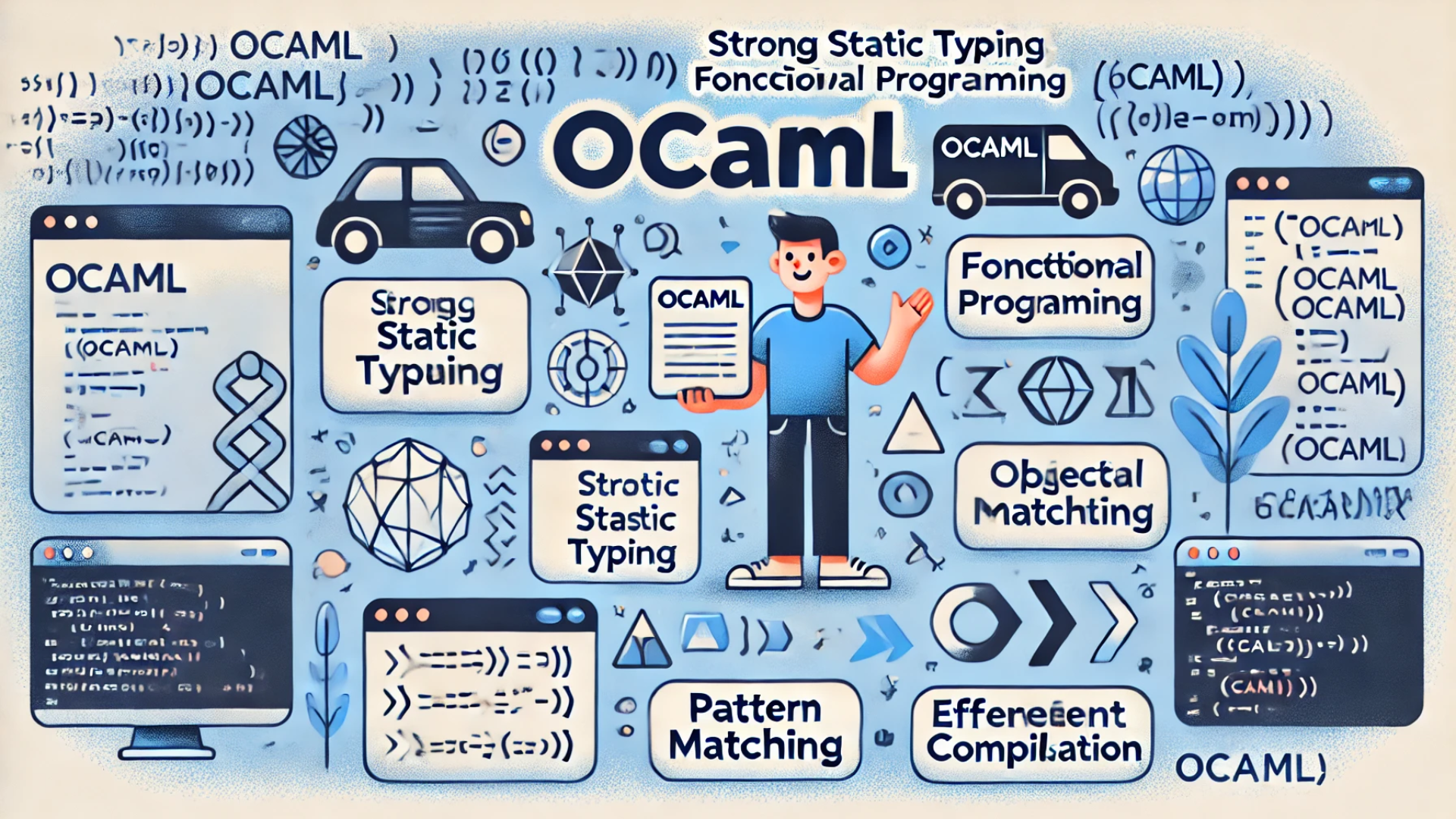
Ever wondered what OCaml is all about? Whether you’re a seasoned programmer or a curious beginner, this guide will walk you through the essentials of OCaml. We’ll explore what makes this language special, how it works, and why you might want to add it to your programming toolkit. So, let’s dive in and demystify OCaml!
What is OCaml?
OCaml, short for Objective Caml, is a general-purpose programming language. It’s part of the ML (Meta Language) family, known for its strong static typing and functional programming features. Developed by INRIA (French Institute for Research in Computer Science and Automation), OCaml is prized for its expressiveness and efficiency.
Key Features of OCaml
1. Strong Static Typing
One of the standout features of OCaml is its strong static typing. This means that types are checked at compile time, which helps catch errors early in the development process. It also makes your code more reliable and easier to maintain.
2. Functional Programming
OCaml supports functional programming paradigms, allowing you to write concise and predictable code. Functions are first-class citizens in OCaml, which means you can pass them as arguments, return them from other functions, and store them in data structures.
3. Object-Oriented Capabilities
Besides functional programming, OCaml also supports object-oriented programming. You can define classes, create objects, and use inheritance, making it a versatile language that can adapt to various programming needs.
4. Pattern Matching
Pattern matching is a powerful feature in OCaml that simplifies many programming tasks. It allows you to match data structures against patterns and decompose them in a concise and readable way.
5. Efficient Compilation
OCaml compiles to efficient machine code, making it suitable for performance-critical applications. Its native compiler produces fast and optimized executables, while its bytecode compiler offers portability across different platforms.
Why Learn OCaml?
1. Versatility
OCaml’s blend of functional and object-oriented programming makes it a versatile choice for different types of projects. Whether you’re working on algorithms, data analysis, or software development, OCaml can handle it.
2. Performance
Thanks to its efficient compilation, OCaml delivers high performance. It’s often used in scenarios where speed is crucial, such as in financial systems, simulations, and large-scale data processing.
3. Robustness
With its strong static typing, OCaml helps you catch errors at compile time rather than at runtime. This leads to more robust and reliable code, reducing the chances of bugs and crashes.
4. Community and Resources
While not as large as some other programming language communities, the OCaml community is active and supportive. There are plenty of resources, including tutorials, documentation, and forums, to help you get started and troubleshoot issues.
Getting Started with OCaml
1. Installation
First things first, you need to install OCaml. You can download it from the official OCaml website or use package managers like OPAM (OCaml Package Manager) to simplify the process.
2. Hello, World!
Let’s write a simple “Hello, World!” program in OCaml. Create a file named hello.ml and add the following code:
print_endline "Hello, World!"Save the file and compile it using the OCaml compiler:
ocamlc -o hello hello.mlRun the compiled program:
./helloYou should see Hello, World! printed on the screen. Congrats, you just wrote your first OCaml program!
3. Basic Syntax
Here’s a quick look at some basic OCaml syntax:
- Variables: Use
letto define variables.
let x = 5
let y = x + 2- Functions: Define functions with
letandfun.
let add a b = a + b- Conditionals: Use
ifandelse.
let is_even n = if n mod 2 = 0 then true else false4. Data Structures
OCaml has a rich set of data structures. Here are a few examples:
- Lists:
let numbers = [1; 2; 3; 4; 5]- Tuples:
let pair = (1, "one")- Records:
type person = { name: string; age: int }
let john = { name = "John"; age = 30 }Useful OCaml Tools
1. OPAM
OPAM is the OCaml package manager. It helps you manage OCaml libraries and tools. You can install it from the official website and use it to install packages:
opam install <package_name>2. Dune
Dune is a build system for OCaml. It simplifies the compilation and management of OCaml projects. You can create a new project with:
dune init proj my_project3. Merlin
Merlin is an editor tool that provides rich support for OCaml. It offers features like auto-completion, type information, and error highlighting, making your development experience smoother.
Conclusion
OCaml is a powerful and versatile programming language that offers a unique combination of functional and object-oriented programming. Its strong static typing, efficient compilation, and robust features make it an excellent choice for a variety of applications. Whether you’re new to programming or an experienced developer, learning OCaml can open up new possibilities and enhance your coding skills.
FAQs
Q: What makes OCaml different from other programming languages?
A: OCaml’s combination of functional and object-oriented programming, along with its strong static typing and efficient compilation, sets it apart from many other languages.
Q: Is OCaml hard to learn?
A: While OCaml has a learning curve, especially if you’re new to functional programming, its syntax is clean and the community is very supportive, which can make the learning process smoother.
Q: What are some common uses for OCaml?
A: OCaml is used in various fields, including financial systems, simulations, data analysis, and software development, due to its performance and versatility.
Q: Where can I find resources to learn OCaml?
A: There are many resources available online, including the official OCaml website, tutorials, documentation, and community forums. OPAM also offers a wide range of libraries and tools to enhance your OCaml experience.

